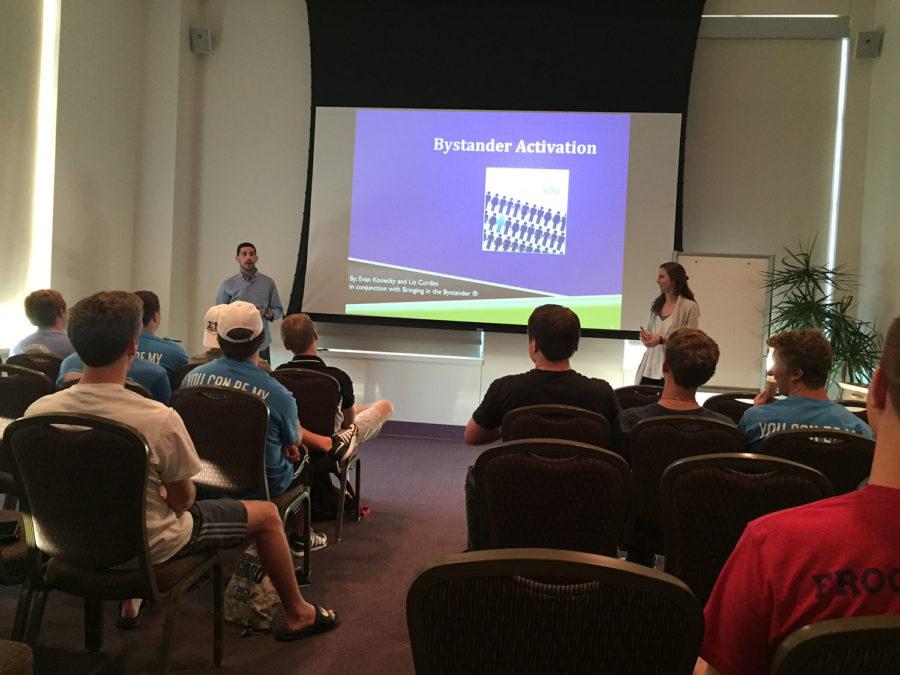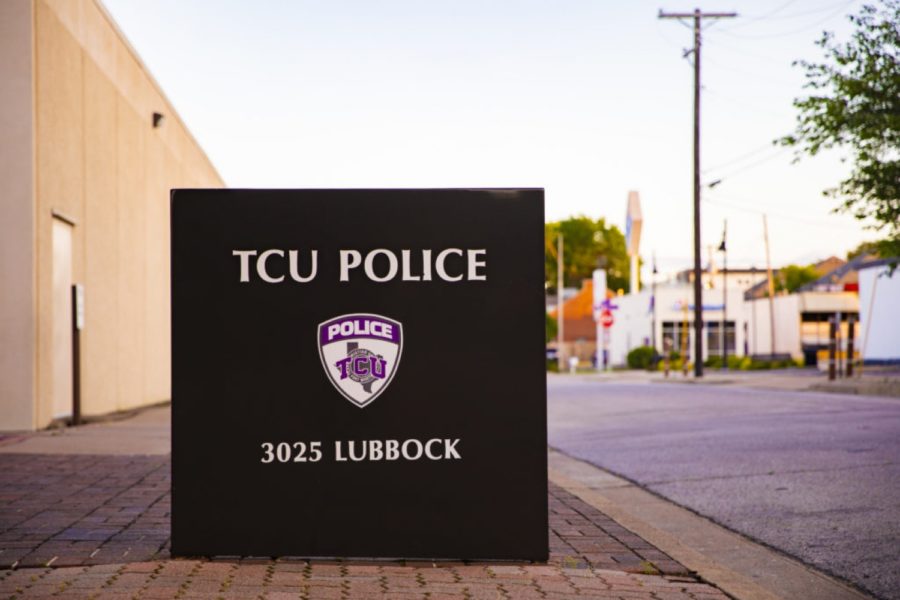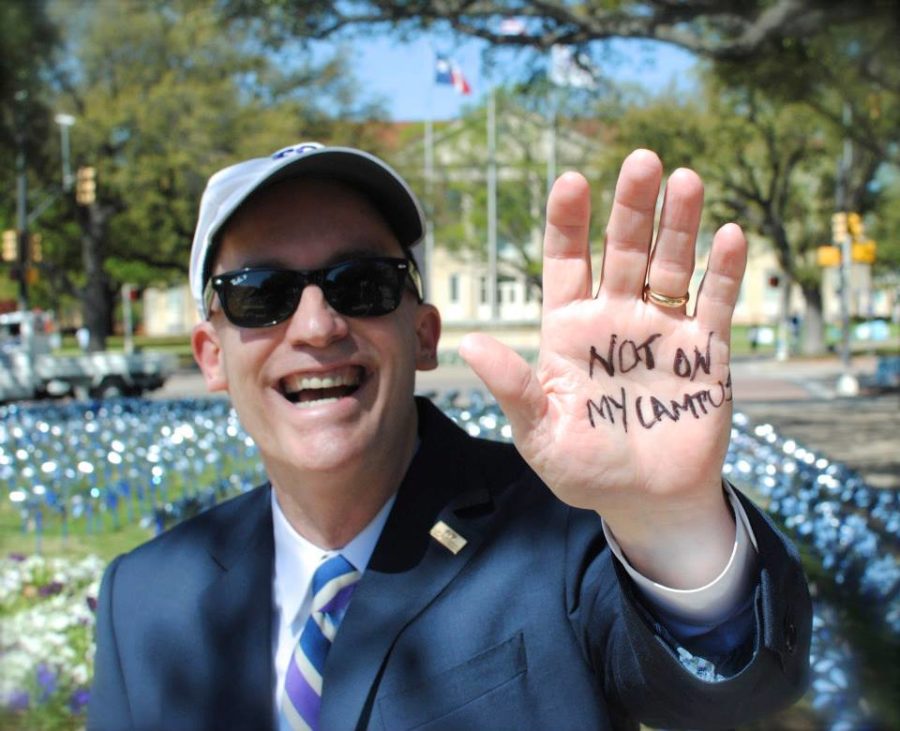Students involved in fraternity and sorority life at TCU took on 90-minute sessions of bystander intervention trainings that covered hazing and other misconduct situations this fall.
The bystander intervention trainings were implemented after a mandatory Interfraternity Council (IFC) bylaw was created. The bylaw requires all new members of Greek organizations to go through the skill-building trainings.
The presentation identified bystanders as individuals that witness emergencies. Other issues were discussed such as the scope of sexual misconduct, rape culture, Title IX, and hazing.
“Other than just focusing on sexual assault, the trainings highlight the importance of stopping hazing, alcohol and drug abuse,” Associate Vice Chancellor of Student Affairs David Cozzens said.
Recent cases of hazing were used as studies for the participants to cross-examine such as the incident at Clemson University.
Presenters used the TCU Mission Statement as an example of a code to follow as a positive bystander. Short videos and GIFs were used to facilitate discussion on what scenarios needed intervention.
“These trainings go into what being a Horned Frog is all about,” co-facilitator Elizabeth Cordes said.
Cozzens said the bystander committee aims to broaden the trainings and create a full-fledged program that identifies other risky behaviors that all TCU students could be affected by.
“We plan on opening up the presentation and being strategic about how we target all TCU students,” Cozzens said.
Cordes said that because students have heard of these issues before, one of the challenges they face is presenting the information in a new and exciting way.
National Pan-Hellenic Council (NPHC) President Lana Fuller said tailoring the program for TCU students would help get the message across.
“It hits closer to home when people see things that affect them personally.”
Cozzens said he hopes the trainings will create a “domino effect” of change that will ultimately alter the entire campus community.
“We hope these trainings create more aware sophomores and juniors that are able to articulate what’s right and wrong for new incoming classes and are more willing to step up in situations where something isn’t right. “
Those interested in getting involved should email [email protected].






